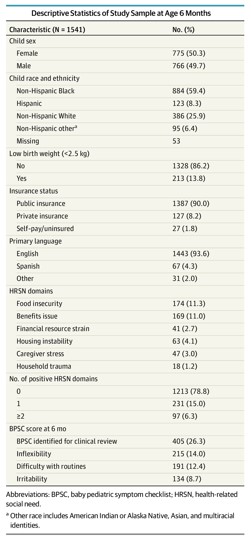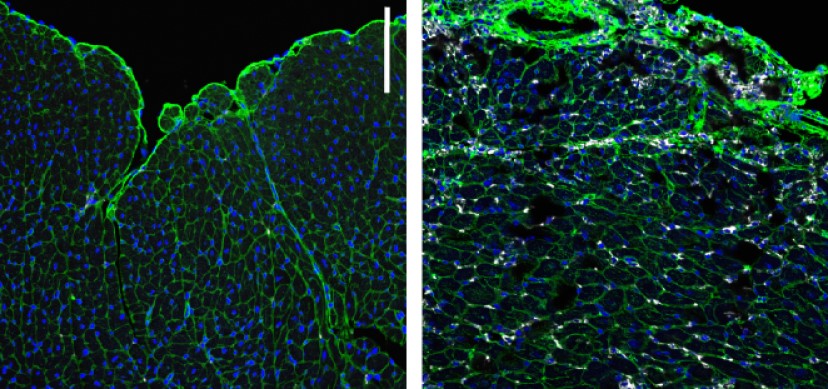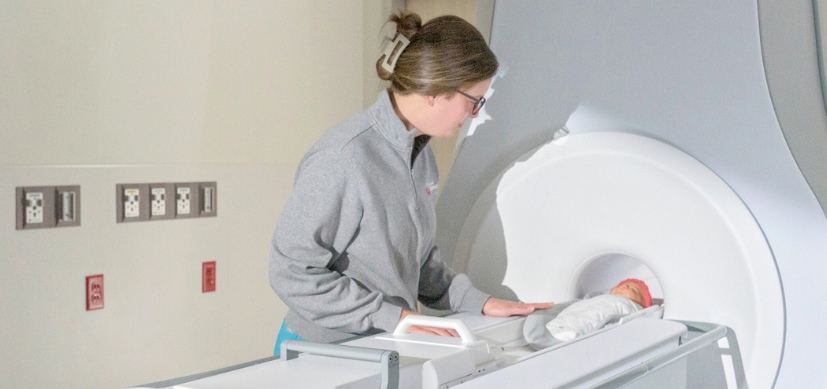Infants Pay the Price When Parents Battle Food Insecurity and Benefits Red Tape
Research By: Chidiogo Anyigbo, MD, MPH
Post Date: December 26, 2023 | Publish Date: Dec. 26, 2023

Study led by Chidiogo Anyigbo, MD, MPH and colleagues at Cincinnati Children’s documents early signs of emotional and behavioral disruption in households under stress, reinforcing the need to assure stable access to healthy nutrition from day one.
Taking on the parenting duties to support a newborn child is stressful enough when everything goes well.
But when parents living in under-resourced conditions also must battle government red tape to stay enrolled in important food benefit programs, the stress measurably affects their babies’ emotional and behavioral health, according to research published Dec. 26, 2023, in JAMA Pediatrics.
Read related “Viewpoint” re administrative burdens facing WIC recipients
Given the importance of the first year of life to overall brain development, addressing disruptions to food security is a problem that requires rapid intervention, according to lead author Chidiogo Anyigbo, MD, MPH, a clinician and researcher with the Division of General and Community Pediatrics at Cincinnati Children’s.
“A number of studies have associated household food insecurity with poor pediatric mental health outcomes including depression, externalizing and internalizing behaviors, and hyperactivity,” Anyigbo says. “But those studies have focused almost exclusively on children aged nine months and older. To our knowledge this is the first study to document the association between household food insecurity and problems accessing nutrition benefits programs and behavioral challenges during the first six months. This finding is important because at this stage of child development, every month matters, and early intervention can have lifelong benefits.”
Measurable, predictable, avoidable outcomes
The American Academy of Pediatrics provides many recommendations for preventative screening for a child’s physical and mental health. While pediatricians can use blood tests, scanners and other tools to learn many things about an infant’s health, understanding how their environments influence mental health is no simple task.
This study used two measurement tools routinely administered during primary care pediatric well visits to identify populations of infants at early risk of behavioral challenges due to factors such as impact of food insecurity or public benefits programs. Overall, the study analyzed data from more than 1,500 infants, 90% of whom lived with families receiving or qualified to receive public health insurance (Medicaid).
The researchers started with a screening tool that assesses health-related social needs (HRSNs) before the age of 4 months. They compared that information to another standard tool called the Baby Pediatric Symptom Checklist (BPSC), which is given at age 6 months.
The HRSN data reveals a constellation of problems that under-resourced families can face, including challenges meeting basic needs for food, housing, and safety. But in this study, researchers found a particular correlation between reports of food insecurity and difficulties maintaining benefits, and infant behaviors measured in more detail at age 6 months.
Overall, about 26% of the families studied reported babies exhibiting unusual amounts of behavioral dysfunction such as inflexibility, difficulty with routines, and irritability. The more problems reported in the HRSN data, the more problems were found later in the BPSC data.
“Specifically, when two or more problems appeared on the HRSN screening, children were twice as likely to exhibit behavior concerns on their BPSC screening test that were serious enough to prompt clinical review,” Anyigbo says.
Early intervention can help
“We already know that food insecurity can increase emotional distress, increase aggravation, and weaken the attachment between parent and child,” Anyigbo says. “Now with screening tools that can detect these concerns at an early age, we have an opportunity to intervene.”
Pediatricians and primary care clinics have near-universal access to infants and are well-positioned to help connect families to food pantries and community food banks. They also can help families connect with parent support programs, services to assist with insurance coverage, and programs such as the Supplemental Nutrition Assistance Program (SNAP) and the Supplemental Nutrition Program for Women, Infants, and Children (WIC).
Anyigbo has already begun working on an online platform and QR code project to help more families who speak a variety of languages navigate the hassles of qualifying for food benefits through the WIC program. Read more about the $326,000 grant awarded for that project.
“The idea that these kinds of support systems are needed isn’t especially new,” Anyigbo says. “What is new is that the evidence indicating how vital it is for healthy infant behavioral development to address food insecurity right away. Challenges accessing public nutrition benefits such as WIC may further compound the deleterious effects of food insecurity on infant behavioral functioning. This is particularly relevant given ongoing calls for Congress to act to fully fund the WIC program.”

About this study
In addition to Anyigbo, Cincinnati Children’s co-authors included Chunyan Liu, MS, Shelley Ehrlich, MD, ScD, MPH, Allison Reyner, MS; Robert Ammerman, PhD; and Robert Kahn, MD, MPH.
Funding sources for the study include the National Center for Advancing Translational Sciences (KL2TR001426) and a Young Investigator Award from the Academic Pediatric Association.
Learn More
A six-year study led by experts at Cincinnati Children’s–published Oct. 16, 2023, in JAMA Pediatrics–found alarming evidence of unhealthy behavioral trajectories starting as early as age 2 among families affected by low income and other social stressors.
- Millions of parents and young kids could be denied food aid next year without funding boost, report warns
- Biden admin. warns WIC nutrition program faces $1 billion shortfall if Congress doesn’t act
- Congress Must Act to Fully Fund WIC in 2024, Or Risk Nutrition Security for Millions of Women, Infants and Children
| Original title: | Household Health-Related Social Needs in Newborns and Infant Behavioral Functioning at 6 Months |
| Published in: | JAMA Pediatrics |
| Publish date: | Dec. 26, 2023 |
Research By








